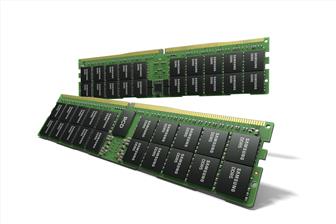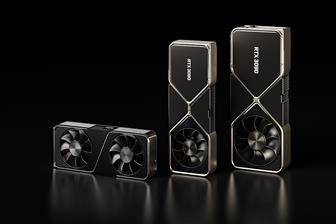
AMD has unveiled the company's strategy for its upcoming Polaris architecture-based Radeon RX series graphics cards, introducing levels of VR performance and future-proof technologies at a variety of price points. The Radeon RX 480 delivers premium VR capability at a price of starting at US$199 for the 4GB edition.
Set for launch and availability on June 29, the Radeon RX 480 will deliver a solution for premium PC VR experiences, delivering VR capability common in US$500 GPUs.
AMD expects that PC VR enabled by Polaris architecture-based graphics cards will drive a wide range of VR-ready desktops and notebooks, providing a catalyst for the expansion of the addressable market to an estimated 100 million consumers over the next 10 years.

Samsung HKMG DDR5
Samsung Electronics has expanded its DDR5 DRAM memory portfolio with a 512GB DDR5 module...
Photo: Company

Nvidia GeForce RTX 30 series GPUs
Nvidia's GeForce RTX 30 series GPUs are powered by the company's Ampere architecture. The...
Photo: Company

Apple HomePod mini
Apple's HomePod mini is the newest addition to the HomePod family. At just 3.3 inches tall,...
Photo: Company

Apple 13-inch MacBook Pro with Magic Keyboard
Apple has updated the 13-inch MacBook Pro with the new Magic Keyboard for an improved typing...
Photo: Company

Apple iPad Pros
Apple's new iPad Pros comes with the latest A12Z Bionic chip, an ultra-wide camera, studio-quality...
Photo: Company
- Huawei's latest AI processors were made by TSMC (Oct 22) - Bloomberg
- Arm to scrap Qualcomm chip design license in feud escalation (Oct 23) - Bloomberg
- Embedded World brings 3,500 visitors to 1st US outing (Oct 11) - EE Times
- Preparing electronics engineering students for industry (Oct 8) - EETimes Europe
- Former Apple hardware chief Dan Riccio is retiring (Oct 11) - Ars Technica
- Key takeaways as China outlines plans to revive economy, end housing slump (Oct 11) - Bloomberg
- Taiwan's president vows to resist 'annexation' (Oct 10) - BBC News
- Indonesia asks Apple, Google to block China's Temu to protect small merchants (Oct 11) - Reuters
![]() Microsoft's custom chip sets new industry benchmark while deepening AI partnerships across sectors
Microsoft's custom chip sets new industry benchmark while deepening AI partnerships across sectorsAs Microsoft transitions from a software giant to a cloud leader, with its cloud business now accounting...
![]() Startups and innovations
Startups and innovationsTake a look at the innovative ideas, products and services that startups offer.

CSP in-house development of ASIC accelerators
Google TPUs will see a share of over 70% in the in-house developed cloud ASIC accelerator market in 2024; an all-optical network...

AI chip market outlook 2023-2028: Insights from demand and supply perspectives
The growing demand for AI computational power is accelerating advancements in hardware and chip technology, necessitating innovation...

Automotive CIS tech development, 2024
The popularization of autonomous driving is boosting demand for automotive CIS with LFM and HDR being mainstream development...






